Many of the most significant problems plaguing humanity can be solved with the exploitation of one small organism: the maggot.
At a current maximum of 27mm in length, 6mm in width, and a whopping 220mg, the pre-mature larval form of the black soldier fly is legless, wingless, and eyeless (Tran et al. 2015)
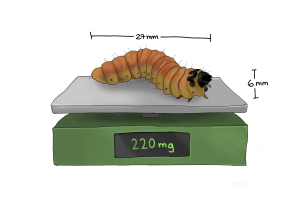 Maggots, feeding exclusively on decaying organic material such as dead animal flesh and plant matter, reach their optimal size in about 1-2 weeks (Tran et al. 2015)
Maggots, feeding exclusively on decaying organic material such as dead animal flesh and plant matter, reach their optimal size in about 1-2 weeks (Tran et al. 2015)
Maggots are the superfood trend that is yet to catch on in North America, but along with other insects, has been a vital source of nutrients in Asian countries like Thailand for generations. When nutritional information is compared to that of beef and chicken, there is no question at the value of the humble maggot:
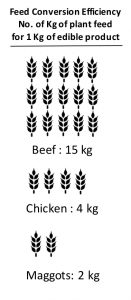
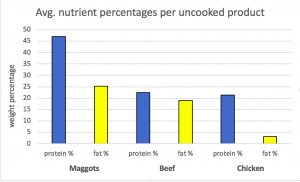
Fig. 1 & 2 (Williams 2007; USDA 2019; Aneibo et al. 2008)
The most efficient means for energy transformation in maggot cultivation comes from a human-maggot-human cycle, where dead humans are fed to maggots. In this process, maggots decompose the commonly wasted energy from the cadavers and transfer the human bodies into energy and mass. Humans then consume the maggots directly, reaping the rewards of the high nutrient creatures:
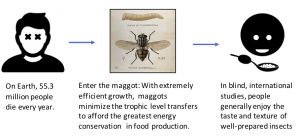
Fig. 3 (Ecology Global Net. 2011; Belluco et al. 2014; Baker et al. 2016)
This cycle not only offers exceptional benefits in energy utilization and efficiency, but also affords remarkable environmental benefits. Traditional human burials, cremations, and conventional farming methods have debilitating environmental impact that can be actively circumnavigated by maggot burials and maggot cultivation:
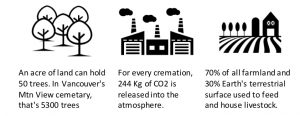
Fig. 4 (NCSU 2010; Spade 2015; Premalatha et al. 2011)
Impressively, benefits of maggot farming are not limited solely to the environment and human diet; the application of maggot farming could afford profound opportunities to accelerated the advancement of peoples in low-income countries throughout the developing world.

Fig. 5 (Hance 2014; The World Bank 2017; Malassis 2011; Muller 2011)
With so many positive outcomes from maggot farming in nutrition, environment, and advancement in the developing world, it is important not to be blinded by all these benefits; in actuality, the ethical concerns attributed to this new global protein source are extensive and have the potential to stop this world-improving revolution before it starts.
A process as controversial as this could yield its own document of exhausting length and detail, but for brevity’s sake, this analysis is focussed on the most anticipated and the major conspicuous ethical concerns:
 Due to the extreme efficiency of maggot production, the most ethical agricultural approach may lead to an outright ban on farming of non-insect livestock, which could have debilitating outcomes for smaller operations and families unable to adjust their farming methods.
Due to the extreme efficiency of maggot production, the most ethical agricultural approach may lead to an outright ban on farming of non-insect livestock, which could have debilitating outcomes for smaller operations and families unable to adjust their farming methods.
 Especially in regions like North America where insect consumption is not commonplace, considerations arise as to whether or not humans are okay eating maggots, and, of course, if they will be okay eating maggots that have eaten decaying human bodies.
Especially in regions like North America where insect consumption is not commonplace, considerations arise as to whether or not humans are okay eating maggots, and, of course, if they will be okay eating maggots that have eaten decaying human bodies.
 With so many tiny animals, the human inadequacy of handling resources (i.e. oil spills), and minimally established agricultural standards, the possibility exists for animal escape that could have significant impact on ecological balance throughout the world (Collings et al. 2019).
With so many tiny animals, the human inadequacy of handling resources (i.e. oil spills), and minimally established agricultural standards, the possibility exists for animal escape that could have significant impact on ecological balance throughout the world (Collings et al. 2019).
 As prohibition created a black market of bootleggin’ alcohol, the banning of non-insect meat appears destined to create an illegal industry for cultivation and sale of non-insect products (Miron 2004).
As prohibition created a black market of bootleggin’ alcohol, the banning of non-insect meat appears destined to create an illegal industry for cultivation and sale of non-insect products (Miron 2004).
 On the global scale, competition over resources, access to commodities, and changes in trade dynamics, could result in global unrest; the countries that are best able to produce the world’s most important protein source gain significant political and economic power, which could lead to hostility with resource-mongering countries, like the United States, with a potential for international conflict. (Bowles et al. 1998; Miller 2017).
On the global scale, competition over resources, access to commodities, and changes in trade dynamics, could result in global unrest; the countries that are best able to produce the world’s most important protein source gain significant political and economic power, which could lead to hostility with resource-mongering countries, like the United States, with a potential for international conflict. (Bowles et al. 1998; Miller 2017).
Humans need to discern for themselves, assessing the situation analytically and emotionally, what aspects of life are of the greatest value. Humans must balance efficiency and productivity with old-world traditions, logical models with the “ick” factor, and the health of the environment and developing world with an obsession for cheeseburgers and bacon.
If managed properly and not used as a tool for war, the implementation of maggot farming offers innumerable benefits to humanity, but mismanaged or used as fuel for revolution, maggot farming has the potential to shepherd humanity to extinction.
![]()
You can find full list of references here.
Let’s get snacking!
Joey Krahn
